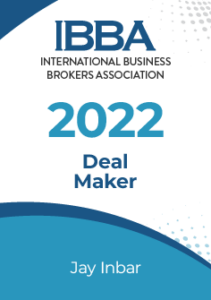Selling a business is a high-stakes event that can significantly influence an entrepreneur’s legacy and financial future. The process is dynamic, challenging, and multifaceted. For business owners who are considering or on the cusp of selling their enterprise, understanding the intricacies of the sales journey is paramount. In this comprehensive guide, we will break down the selling process into four categorical stages, each teeming with critical tasks and strategic undertakings. Whether you are an experienced business owner or a budding entrepreneur, successfully navigating these stages will not only lead to a fruitful sale but also to a greater sense of control during this monumental business milestone.
Stage 1: Preparing for the Sale
The initial stage is all about setting the foundation for a successful sale. It involves meticulous planning, organizing, and assessing the readiness of the business to be put on the market.
Conducting a Thorough Business Valuation
Effective business valuations are based on more than just financial statements. They take into account the business’s historical performance, future prospects, industry trends, and market conditions. Engaging a professional valuator or investment banker is often the best way to ensure an accurate assessment of your business’s worth.
Identifying Potential Buyers
Knowing who might be interested in buying your business is crucial. This involves not only understanding the market but also having a clear picture of what type of buyer would be the best fit. Whether it’s a competitor, a private equity firm, or a strategic investor, tailoring your approach to suit their needs can add significant value to your proposition.
Gathering Necessary Documentation
Buyers will require a wealth of information before committing to a purchase. Organizing financial statements, employee contracts, intellectual property registration, and other essential documentation ahead of time can expedite the sale process and instill confidence in potential buyers.
Stage 2: Marketing and Negotiating
With the pre-sale groundwork complete, the focus switches to creating a compelling offering and engaging with potential buyers.
Crafting a Sales Pitch
This is more than just drafting a document—it’s about storytelling. Create a narrative that highlights the strengths of your business, including its unique value proposition, customer base, and growth potential.
Developing a Marketing Strategy
Target your marketing efforts towards potential buyers identified in the first stage. This could involve online advertising, networking within industry-specific communities, and leveraging the reach of business brokers.
Negotiating Terms and Conditions
The negotiation phase can be complex and involves a delicate balance of assertiveness and diplomacy. Setting clear objectives, understanding the buyer’s perspective, and having strong support from legal and financial advisors are essential.
Stage 3: Due Diligence
After agreeing on the terms of the sale, the due diligence process begins. This stage is when both parties conduct an in-depth examination of each other’s business and financial records.
Providing Access to Financial Records and Other Documents
Transparency is key during due diligence. Be prepared to share everything from tax returns to internal process documentation.
Conducting Background Checks on Potential Buyers
This is an often overlooked but crucial aspect, to ensure that the buyer has the capability and intent to follow through with the purchase.
Evaluating the Financial Health of the Potential Buyer
Just as the buyer assesses the seller’s financial status, the seller should also investigate the ability of the buyer to secure funding and manage the acquired business.
Stage 4: Closing the Deal
As the finish line approaches, the Fourth Stage is about putting pen to paper and finalizing the transaction.
Finalizing the Sale Agreement
The sale agreement is a comprehensive document that outlines all the details of the transaction. It is often lengthy and complex, requiring negotiation and attention to detail.
Transferring Ownership and Assets
Once the agreement is signed, the legal transfer of ownership and assets takes place. This can involve various regulatory requirements and must be timed strategically.
Addressing Post-sale Obligations and Transition Plans
The deal doesn’t end with the transfer of ownership. Post-sale obligations, such as training the new owner or employees, and non-compete agreements, also need to be addressed.
In conclusion, selling a business involves more than just finding a buyer and signing a check. It is a strategic, multi-faceted process that requires thorough preparation, rigorous execution, and attention to detail. As you navigate through each of these stages, remember the importance of seeking professional guidance, maintaining open lines of communication, and being prepared for unexpected twists. By following this guide, you will position yourself for a successful business sale that not only maximizes financial gain but also ensures a smooth transition and a long-lasting, positive legacy for your business.
Ready to navigate the intricate process of selling your business in Pittsburgh PA? Partner with our experienced business brokers in Pittsburgh PA for expert guidance at every stage. Our business brokerage services in Pittsburgh PA are tailored to maximize your financial gain and ensure a smooth transition. Contact us today to explore how our business broker service in Pittsburgh PA can help you achieve your goals and secure the best deal for your business.




